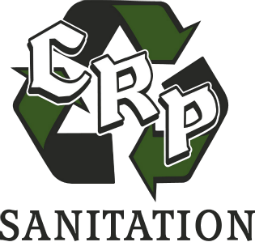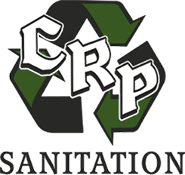Organic Recycling
Lower Hudson Valley and Southern CT
Over 45 Years of Industry Experience
Roll-Off Dumpster Services
Same-Day Emergency Services
Hours:
Request Lorem Epsom
Hero Request Form
Thank you for contacting us.
We will get back to you as soon as possible.
Please try again later.
Transform Your Waste into Environmental Gold with Organic Recycling
Ready to make a positive impact on the environment? C.R.P. Sanitation Inc's organic recycling services are here to help. We're your partners in sustainable waste management, serving the Lower Hudson Valley and Southern CT, and various counties in NY, including Fairfield, Putnam, Dutchess, Westchester, Orange, Rockland, and Ulster. Our comprehensive organic recycling program includes:
- Food scrap pickup services
- Curbside pickup
- Roll-off dumpster services
- Dumpster rental services
- Waste management services
Don't let your organic waste go to waste.
Reach out to us today and start your journey towards a greener future.
Organic Recycling: A Sustainable Solution for Modern Businesses
In today's eco-conscious world, organic recycling isn't just a trend—it's a necessity. Here's why your business might need our organic recycling services:
- Reduce landfill waste and greenhouse gas emissions
- Comply with local and state environmental regulations
- Improve your company's sustainability profile
- Create nutrient-rich compost for local agriculture
- Potentially lower waste management costs
By choosing organic recycling, you're not just managing waste—you're contributing to a circular economy and a healthier planet.
Why Choose C.R.P. Sanitation
When it comes to organic recycling, experience and reliability matter. Here's why C.R.P. Sanitation stands out:
- Over 45 years of industry experience
- Family-owned business since 1979
- Fully licensed and insured
- Next-day services available
- Same-day emergency services
- Estimates within the next business day
- Well-trained customer service team
- Live customer support
- Personalized experiences
- Long-lasting relationships with our customers
We're not just a service provider—we're your long-term partner in sustainable waste management. Our commitment to excellence and customer satisfaction sets us apart in the industry.
Contact Us
Ready to take the next step towards sustainable waste management? We're here to help you navigate the world of organic recycling. Our team is ready to answer your questions, provide a free quote, and offer service information tailored to your specific needs.
Don't let another day go by without making a positive impact on the environment.
Contact us now to start your organic recycling journey with C.R.P. Sanitation.
- Bullet text
- Bullet text
- Bullet text
- Bullet text
- Bullet text
- Bullet text
- Bullet text
- Bullet text
- Bullet text
- Bullet text
Title or Question
Describe the item or answer the question so that site visitors who are interested get more information. You can emphasize this text with bullets, italics or bold, and add links.Title or Question
Describe the item or answer the question so that site visitors who are interested get more information. You can emphasize this text with bullets, italics or bold, and add links.Title or Question
Describe the item or answer the question so that site visitors who are interested get more information. You can emphasize this text with bullets, italics or bold, and add links.
Gallery Heading H2

Call Us for Expert Waste Removal
When it comes to waste, you need professionals you can trust. Our team is ready to handle your disposal needs safely and efficiently.




